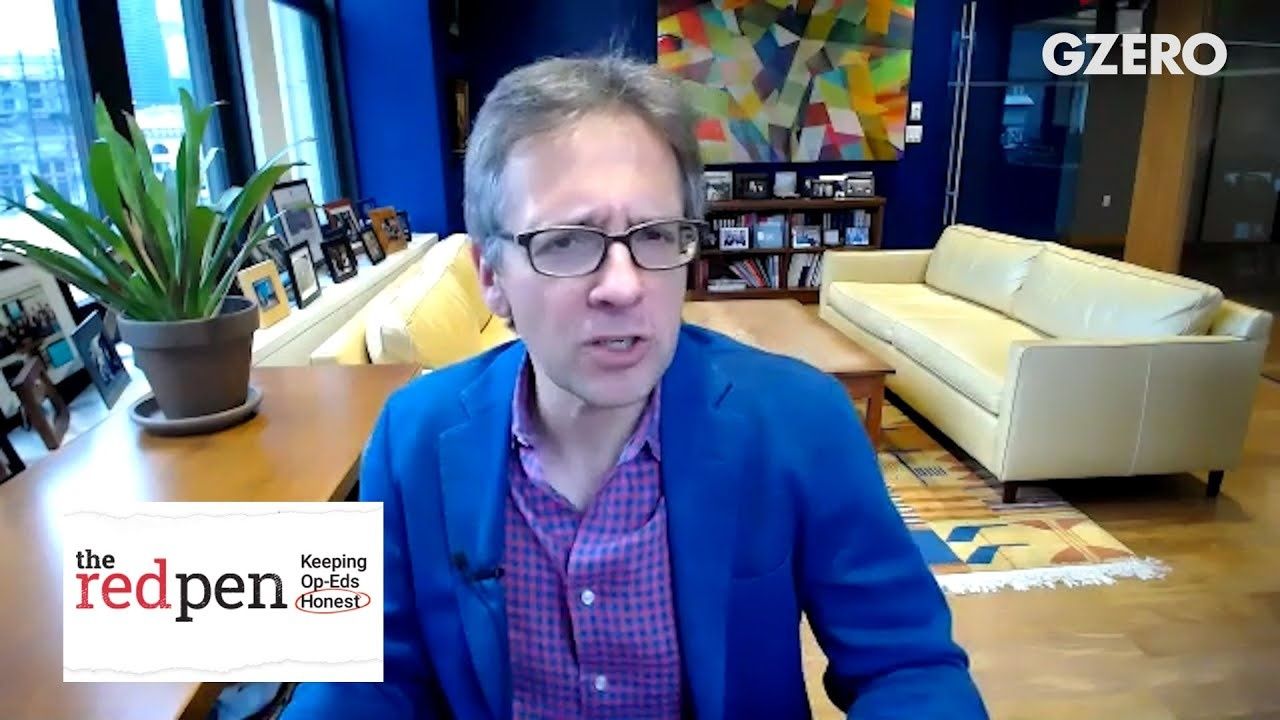The Red Pen
No, don’t abolish the WTO. Reform it.

No, Don’t Abolish the WTO. Reform it. | The Red Pen on Senator Josh Hawley's NYT Op-Ed | GZERO Media

Have you ever read a major op-Ed and thought to yourself, "no! no! no! That's just not right!" Us too. That's why we're launching a new series called The Red Pen, where Ian Bremmer and the crew at Eurasia Group will pick apart the argument in a major opinion piece. Right, left, Republican, Democrat, American, Global — we aren't particular. We just want to keep writers honest. This week, we take the red pen to Senator Josh Hawley's Times op-ed calling for the end of the WTO. No, Josh, killing the WTO isn't a good idea — but reforming it is. Watch the video here, and stay in the red with us!
All-powerful WTO operating against US interests? Hardly. The WTO remains a forum of nation states, with most decisions made by consensus. It's an arbiter, not a manager.
Don't blame the WTO for all the US economy's ills—globalization, tech advancements, and innovation have done as much to disrupt American industries as free trade.
The WTO and GATT did fuel free trade. Average tariff levels fell by 50% from 1947 to 1996 and 20% from 1996 to 2018, while the US created millions of new jobs.
Frustration with China is valid, and change is necessary. But reform, not abandonment, is the solution. Withdrawing from the world is costly, and we will invariably get pulled back in.
The US certainly defends itself … it has brought more cases before the WTO than any other country and won the vast majority of them.
—With research by Henry Rome, Robert Kahn and Caitlin Dean
Our sharing success program reflects BofA’s commitment to teammates and driving economic opportunity for employees and communities. The Proof: Since 2017, our program has awarded nearly $6.8B to employees—recognizing their contributions and investing in their future. Learn more.
WATCH THE REPLAY: At this year's World Economic Forum in Davos, Switzerland, our Global Stage panel discussion will examine the growing infrastructure around AI, how countries are tackling AI adoption, and the ways in which local and supranational industries might benefit from this rapidly accelerating technology. Watch at gzeromedia.com/globalstage